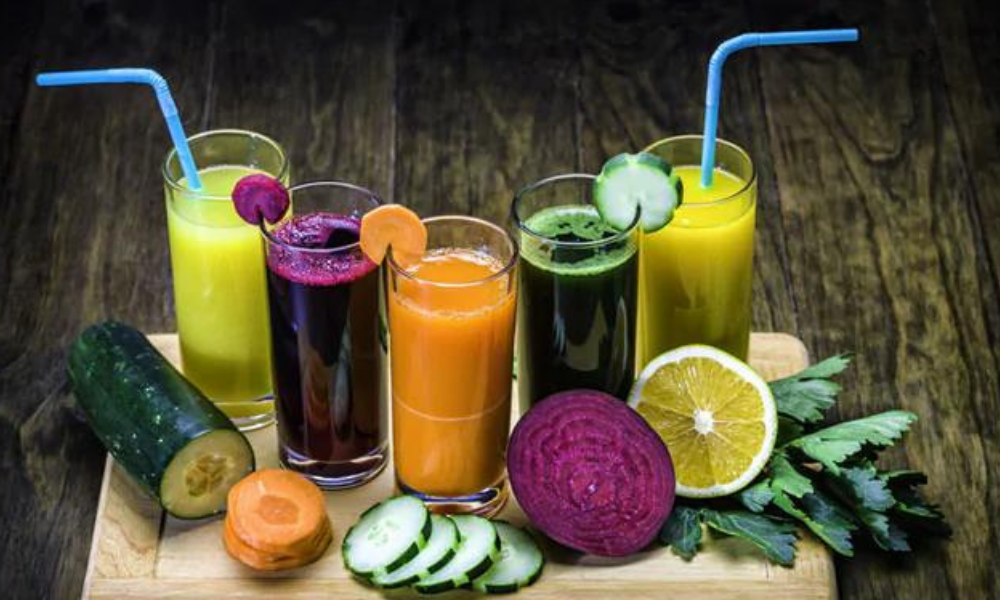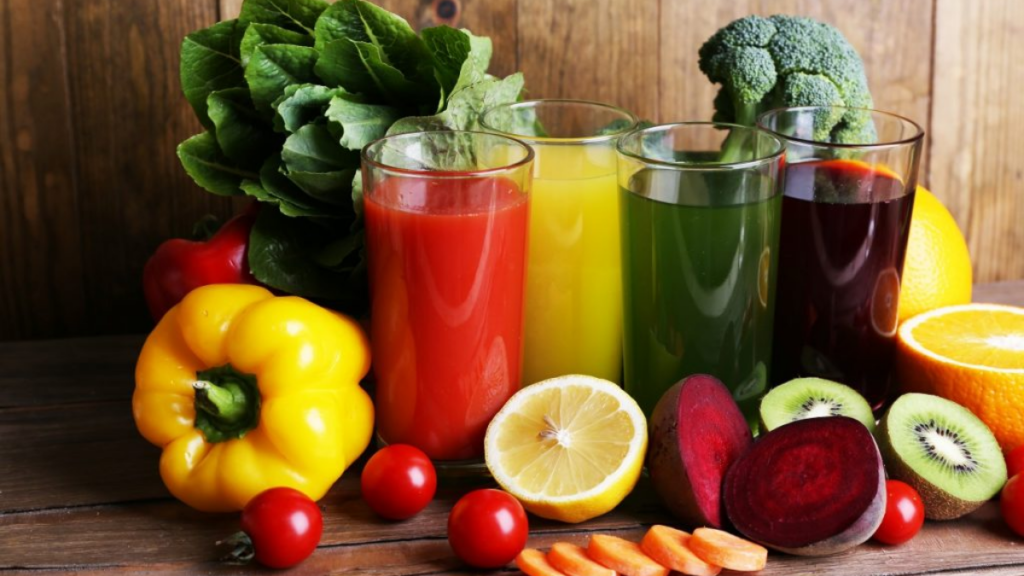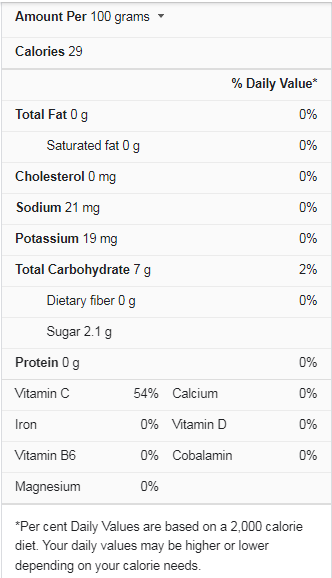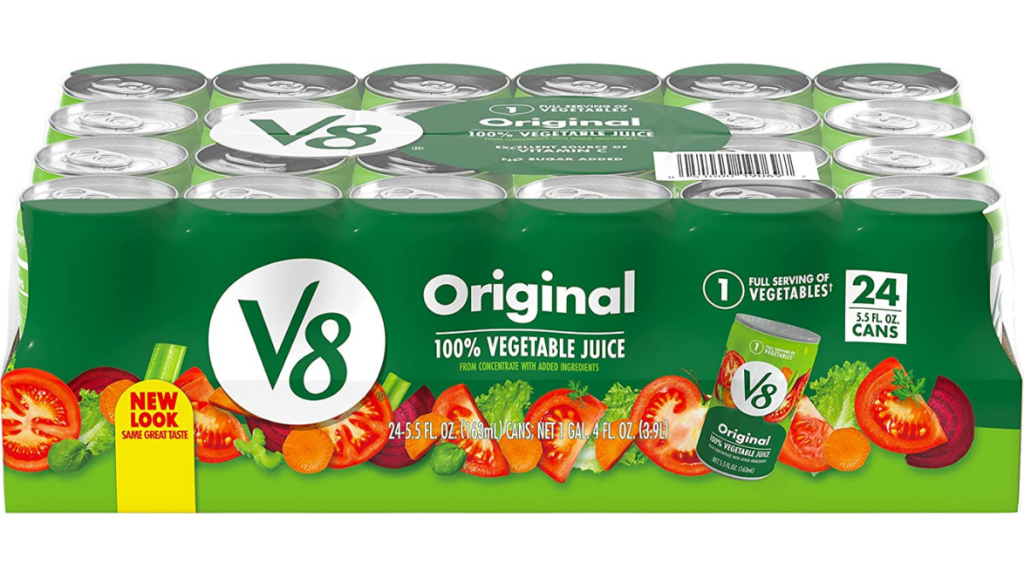If you’ve been considering increasing your intake of fresh vegetable juice, you might be interested in learning more about the various veggies’ nutritional value. Vegetable juice has many advantages, and while it has fewer calories than other juices, it is still packed with nutrients. You should be informed of the numerous varieties of vegetables available and how much of each type you should include in your daily diet to maximize the health advantages of vegetable juice.
Vegetable juice is a concentrated source of antioxidants that are high in nutrients. This drink can be a great snack or a refreshing meal if consumed. Fresh vegetables can be juiced or blended to make vegetable juice. Vegetable juice isn’t as popular as fruit juice, yet it has a lot of health benefits. Here are some of the most crucial facts concerning vegetable juice’s health advantages.
Vitamin A is included in roughly 1,999 international units (IU) per glass of V8. Half a cup of carrots, on the other hand, contains 9,189 IU, or 184 percent of your daily requirement. Fresh vegetable juice nutrition data can be found online or using a search engine. A glass of fresh juice can be more refreshing by adding fresh lemon juice. If you’re not sure what fruit or vegetable juice to use, try mixing it with unsweetened sparkling water to add some flavor.
Fresh Vegetable Juice Nutrition Facts
Vegetable Juice’s Health Benefits
Vegetable juice is a good alternative for people looking for a daily health boost, as it can offer your system a concentrated dosage of nutrients and antioxidants. Whether consumed as a full breakfast, lunch, mid-afternoon snack, or dinner, Vegetable juice can be delicious and highly beneficial to your health goals.
As the name implies, vegetable juice is prepared by juicing or combining vegetables into a drinking beverage. While many people drink fruit juice daily, vegetable juice isn’t as popular, even though it has just as many health benefits.
Lowers Risk of Chronic Diseases
Many vegetables contain potent antioxidants, such as beta-carotene, lycopene, phytonutrients, and phenolic chemicals. This can aid your body in combating the impacts of free radicals, which can cause healthy cells to mutate into malignant ones. Vegetable juice can help you avoid various other chronic diseases, including diabetes, cardiovascular disease, and even some autoimmune diseases, if you drink it regularly.
Improves Heart Health
Many juices include a significant quantity of potassium, decreasing blood pressure and relieving stress on the cardiovascular system. Furthermore, there are significant levels of iron and vitamin C, which can aid in promoting blood circulation and collagen production in the body, lowering the risk of damaged blood vessels or arteries.
Improves Brain Function
Although there is no cure for Alzheimer’s, multiple studies have connected antioxidants to reducing beta-amyloid deposition and eradicating plaque in brain circuits. This can aid in improving memory, focus, and essential functions and the slowing or even prevention of neurodegenerative illnesses.
Increases Nutrient Intake
Vegetable juice contains nutrients and antioxidants that can help to cleanse the colon and rebalance the flora in your gut. Other nutrients can boost the bioavailability of certain minerals and vitamins, allowing them to be absorbed by the body and speeding up your mealtimes!
Skin Care
As previously stated, the high antioxidant content of vegetable juice is beneficial for oxidative stress, which is standard on the skin. Drinking vegetable juice regularly can help with wrinkles, blemishes, scars, age spots, and various inflammatory disorders and infections like psoriasis, eczema, acne, and rosacea.
Hair Care
A nutritional shortage in the body is one of the most common causes of hair loss. Vegetable juice is high in numerous minerals and nutrients essential for good hair, such as vitamin C and beta-carotene, so a glass of it every day can do wonders for your physical appearance.
Immune System Booster
Vegetable juice is well-known for its high vitamin C content; in some situations, a single glass of vegetable juice can meet your total daily ascorbic acid need. Vitamin C stimulates the development of white blood cells, which can significantly boost the immune system. Other antioxidants, such as lycopene, help to strengthen the immune system by preventing oxidative stress and chronic disease.
Hydrates the Body
Although most vegetable juices are inherently abundant in water, some rougher vegetables will need to be blended with water for consistency. This ensures that your body is appropriately hydrated throughout the day, aiding digestion, energy levels, metabolic rate, and cognitive function.
Detoxifies the Body
Diuretic and laxative properties can be found in various vegetable juices. Depending on how you strain your juice, you may have a large quantity of fiber from various veggies, which can help clear up digestive difficulties and eliminate extra waste in the body. Other juices’ diuretic and kidney-stimulating properties can aid in the removal of extra fats, poisons, and salts from the body!
Improves Circulation
Because most vegetables contain significant amounts of iron, this beverage is frequently recommended for its role in circulation, and it aids in the synthesis of red blood cells and hemoglobin. Dark, leafy greens are exceptionally high in iron and can be used to make an antioxidant-rich beverage that can help lower cholesterol and relieve stress on the cardiovascular system.
How Much Vegetable Juice Should I Drink a day?
You should drink at least six 16-ounce cups of juice during a juice fast. From 8 a.m. to 6 p.m., that translates to one serving of juice every two hours. You can drink as much water and herbal tea as you desire throughout the day. In addition, juice lacks the fiber and phytonutrients found in raw fruits. As a result, many experts advise limiting yourself to one juice serving per day. Vegetable juice is a good alternative for people looking for a daily health boost, as it can offer your system a concentrated dosage of nutrients and antioxidants.
Whether consumed as a full breakfast, lunch, mid-afternoon snack, or dinner, Vegetable juice can be delicious and highly beneficial to your health goals. In addition to eating fruits and vegetables, drink 4-6 glasses (16-20 ounces) of fresh juice every day. To meet your hydration demands, you’ll need to drink more liquids.
When is it Better to Consume Vegetable Juice?
Vegetable Juice is a drink that can be consumed at any time. It’s best to do it first thing in the morning or right before a meal. Its vitamins, minerals, and phytonutrients are best absorbed when consumed on an empty stomach, and it also helps the body detoxify. Fresh vegetable juice is the most acceptable approach to keep your body hydrated in the morning with breakfast and in the evening before supper. You will feel lively and revitalized since your body will keep hydrated.
One of the most significant ways to get all of the juice’s advantages is to drink it on an empty stomach first thing in the morning. This will help you absorb all of the nutrients more effectively (as compared to when you enjoy it with a meal). So you might want to wake up to some zingy citrus even before sitting down to breakfast.
Can I Drink Vegetable Juice Instead of Eating Vegetables?
Juicing removes the beneficial fiber found in vegetables. Juices aren’t an excellent substitute for fruits and vegetables. When you drink your vegetables, you may be missing out on the fiber that keeps you full, decreases your cholesterol, and lowers your risk of heart disease. Vegetable juice is a convenient method to add more veggies to your diet, but it should not be used to substitute for whole vegetables.
The average adult should consume 2 1/2 cups of vegetables per day. It’s probably better not to choose to juice or blend your vegetables, overeating them whole unless otherwise suggested by a medical professional, but using liquified vegetables to enhance your diet has a lot of advantages.
How do you Lose Weight Through Juicing?
A juice fast is the most common, in which people substitute their meals with freshly juiced fruits and vegetables. The goal is to lose weight by avoiding solid food while consuming enough nutrients from the juice. These diets are typically relatively low in calories. A tiny 2017 research of 20 participants who juiced for three days found that they lost an average of two pounds and had an increase in gut bacteria, which is linked to weight loss.
But, as Caspero points out, weight loss does not always imply fat loss: It’s usually due to a lack of water. Juiced vegetables and fruits are fat-free and sugar-free. When you begin a juicing practice, you may lose weight, particularly belly fat, by substituting one or more high-calorie meals with a single glass of juice to reduce calories.
Conclusion
Potassium is found in significant amounts in vegetable juice products like V8, which is essential for blood pressure control and cramp prevention. Vitamins A and C, which stimulate the immune system, aid wound healing, and boost collagen formation, are also found in V8. V8 juice includes roughly 50 calories per cup and is fat-free. It also has a lot of sodium and doesn’t have a lot of fiber, but it still has a lot of nutrients.
While most commercially made juices include nutritional information, juice quality varies greatly. Juice from a press is often less healthy than juice produced at home. The nutrients in juices vary depending on the fruits and vegetables used and how they were gathered. The quality of the juice might be affected by whether the fruits and vegetables are organic or not. On the other hand, Juicing is a terrific way to get more fruits and vegetables into your diet. You can also use a blender to mix fruits and vegetables, adding water.




